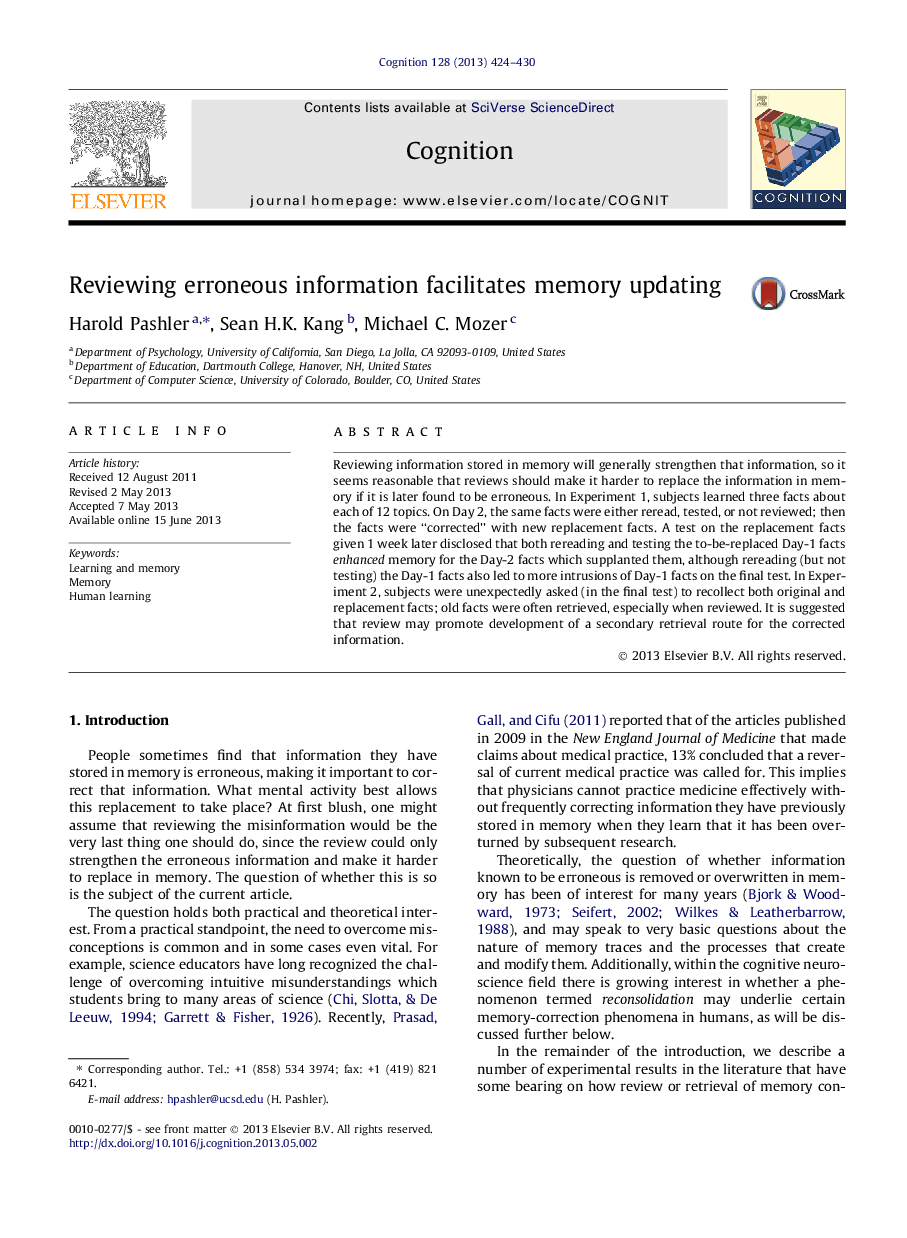| Article ID | Journal | Published Year | Pages | File Type |
|---|---|---|---|---|
| 10457623 | Cognition | 2013 | 7 Pages |
Abstract
Reviewing information stored in memory will generally strengthen that information, so it seems reasonable that reviews should make it harder to replace the information in memory if it is later found to be erroneous. In Experiment 1, subjects learned three facts about each of 12 topics. On Day 2, the same facts were either reread, tested, or not reviewed; then the facts were “corrected” with new replacement facts. A test on the replacement facts given 1Â week later disclosed that both rereading and testing the to-be-replaced Day-1 facts enhanced memory for the Day-2 facts which supplanted them, although rereading (but not testing) the Day-1 facts also led to more intrusions of Day-1 facts on the final test. In Experiment 2, subjects were unexpectedly asked (in the final test) to recollect both original and replacement facts; old facts were often retrieved, especially when reviewed. It is suggested that review may promote development of a secondary retrieval route for the corrected information.
Related Topics
Life Sciences
Neuroscience
Cognitive Neuroscience
Authors
Harold Pashler, Sean H.K. Kang, Michael C. Mozer,
